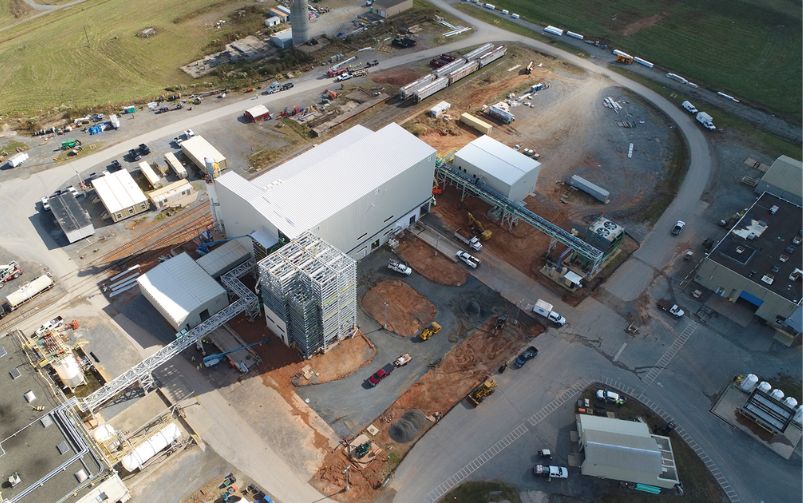Five coal companies are filing lawsuits against the Alberta government for financial losses from the reinstatement of a policy that restricts coal mining in certain areas of the province. Photo by Chris Phan via Flickr.
Welcome back to your weekly mining news recap, where we catch you up on some of the news you may have missed. This week’s headlines include ICMM’s new guidance for targeting Scope 3 emissions, Alberta facing a $10.8 billion lawsuit from several coal companies and a free Mining Potential program that targets industry newcomers.
COP28 countries have pledged to “transition away” from fossil fuels, as reported by Bloomberg. The international conference focused on climate change concluded on Dec. 12 with a non-binding commitment to move away from coal, oil and natural gas over the next few decades to reach net zero goals, without a clear timeline.
Changes to Glencore’s climate action transition plan will come in 2024 after pressure from investors, as reported by Reuters. More than 30 per cent of the company’s investors rejected its climate progression report, citing the need for clarity on its plan to cut carbon emissions. In addition, about 29 per cent of its shareholders demanded transparency into its progress on scaling back thermal coal production after its acquisition of Teck’s steelmaking coal business in November. A revised climate plan will be presented in March.
will work together to design and validate a hydrogen fuel cell-powered mining truck. The lightweight and quick-refuelling hydrogen-powered technology is ideal for electrifying vehicles that have been traditionally powered by diesel engines. The first prototype is projected to be tested at Komatsu’s Arizona Proving Grounds in the middle of this decade.
Five coal companies are suing the Alberta government for damages resulting from policy changes, as reported by The Globe and Mail. The $10.8 billion lawsuit came as Cabin Ridge Project Ltd., Atrum Coal Ltd. and its subsidiary Elan Coal Ltd., Black Eagle Mining Corp., and Montem Resources Ltd. filed separate submissions to Alberta’s Court of King’s Bench for monetary losses after the reinstatement of Alberta’s 1976 Coal Policy, which enforces restrictions to where coal mining can occur in the province.
A new program is training underrepresented groups in mining to help fill the industry’s labour shortage, as reported by Northern Ontario Business. Confederation College and Northwest Employment Works have partnered to launch a free training program called Mining Potential that acts as an introduction to the mining industry and is aimed at women, youth and newcomers in northwestern Ontario. The program will focus on building confidence in students, as well as developing non-technical skills and knowledge. Registration is now open with a program start date of Jan. 15, 2024. Confederation College also offers a Mining Essential program, which is specifically aimed at Indigenous students.
Copper Lake Resources Ltd. is one of the selected junior mining companies that will receive up to $200,000 from the Ontario Junior Exploration Program (OJEP), as reported by Engineering News. The program funds 50 per cent of early exploration costs to a maximum of $200,000, which Copper Lake will use for its copper-zinc-silver-gold Marshall Lake project. The money is part of an Ontario government investment of $35 million over four years to the program, which so far has committed $8.9 million to funding 54 projects.
ICMM has released new guidance to help mining companies set reduction targets to lower their Scope 3 emissions. The Scope 3 Emissions Target Setting Guidance breaks down reducing emissions into short-, medium- and long-term targets, building on ICMM’s recent standardized framework that was released in September and aims to improve companies’ accounting for, and reporting of, Scope 3 emissions.
Post-secondary institutions have agreed to collaborate on a new mining and energy research institute in Saskatchewan. The University of Saskatchewan, the University of Regina and Saskatchewan Polytechnic signed a memorandum of understanding for the creation of a new Global Institute for Mining, Energy and Society (GIMES) to further research and innovation initiatives in the mining and energy sectors.
A new children’s book aims to inspire young people to pursue careers in the mining industry. In a Q&A in the December/January issue of CIM Magazine, Ana Gabriela Juárez shared how her experience as a Guatemalan woman in the mining industry inspired her to write Ana’s Adventures at the Mine.
A transition to predictive decision-making for process monitoring is a more efficient approach than reactive or proactive strategies, Ali Vazirizadeh wrote in the November issue of CIM Magazine. Vazirizadeh argued that utilizing data science and analytics for predictive monitoring offers cost-effective alternatives to reactive and proactive approaches in the mining industry, which can enhance operational efficiency and prevent high-risk situations.
That’s all for this week. If you’ve got feedback, you can always reach us at editor@cim.org. Have something interesting to add? Join the conversation on our Facebook, Twitter, LinkedIn or Instagram.




